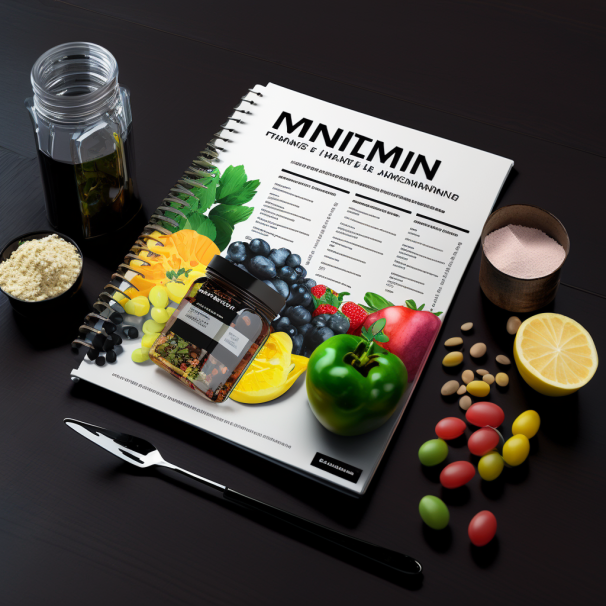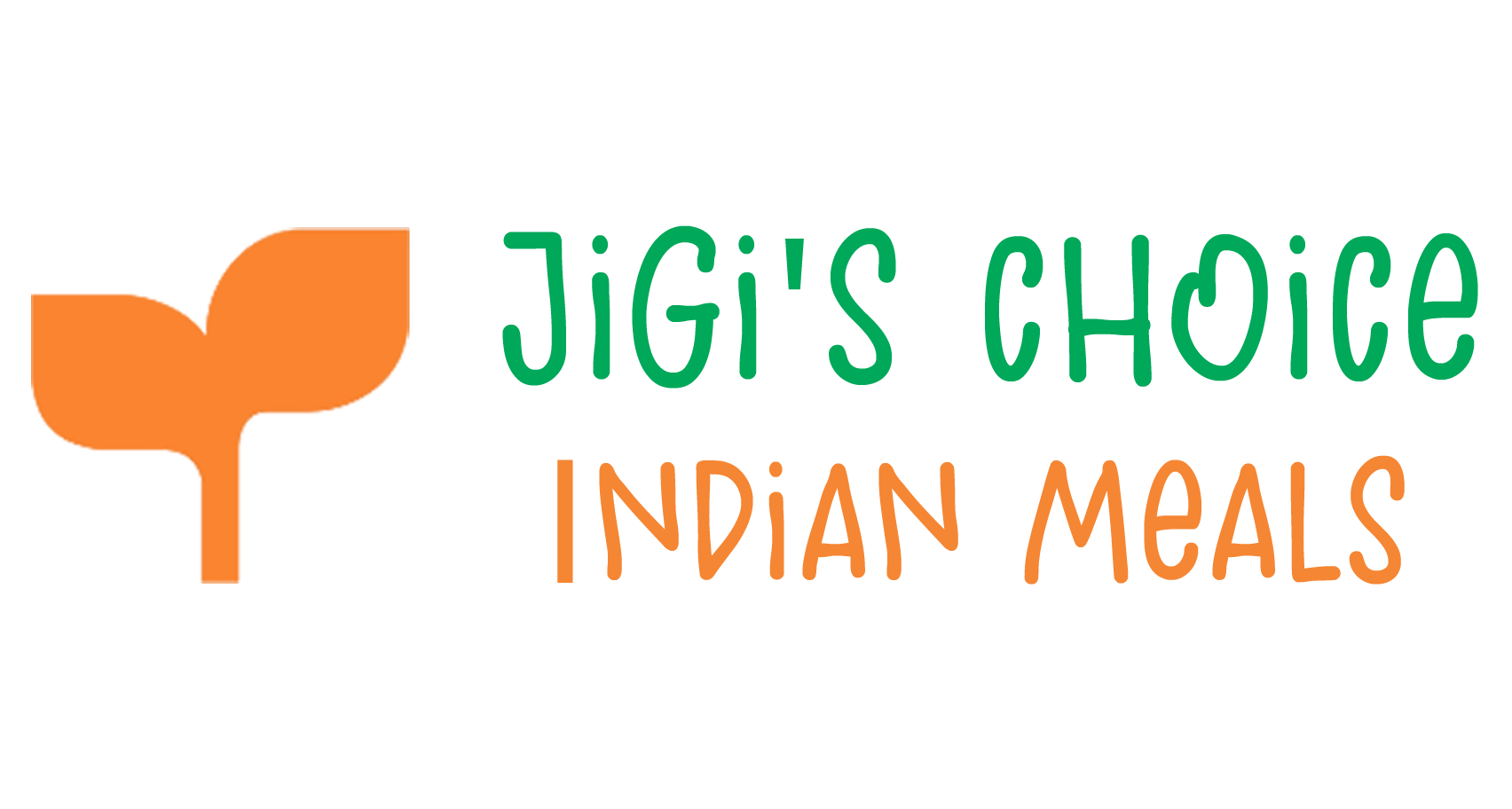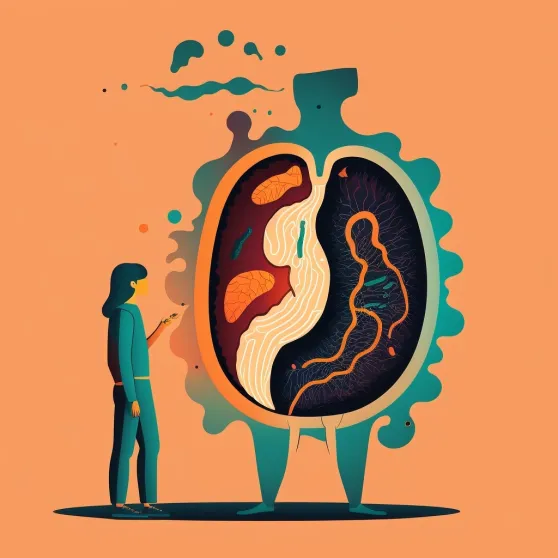Essential Vitamins and Minerals for a Healthy Vegetarian Diet: A Guide to Meeting Nutritional Needs on a Meat-Free Diet
A vegetarian diet is a way of eating that excludes meat and seafood but may include dairy, eggs, and other animal-derived products. People choose to follow a vegetarian diet for various reasons, including health, ethical, or environmental concerns. However, a vegetarian diet requires careful planning to ensure that all nutritional needs are met. In particular, vegetarians need to pay attention to getting enough vitamins and minerals, as some nutrients are more abundant in animal-based foods.
Vitamins and minerals play a crucial role in maintaining good health and preventing chronic diseases. They are essential nutrients that our bodies need to function properly, and deficiencies can lead to various health problems. Vegetarians, therefore, need to be mindful of including a wide variety of nutrient-dense plant-based foods in their diet to meet their daily requirements.
At Jigi’s Choice Indian Meals, we understand the importance of providing our customers with a balanced and nutritious vegetarian diet. We believe that home-cooked meals made from scratch with all-natural ingredients are the key to providing our customers with a taste of home and a healthy lifestyle.

Essential Vitamins and Minerals for Vegetarians
Vegetarians need to pay special attention to getting enough of the following essential vitamins and minerals:
- Iron – An essential mineral that is important for the production of red blood cells and the transportation of oxygen throughout the body. Iron can be found in foods such as beans, lentils, fortified cereals, spinach, and tofu.
- Calcium – A mineral that is essential for strong bones and teeth. Calcium can be found in dairy products, fortified plant-based milks, tofu, almonds, and leafy greens such as kale and bok choy.
- Vitamin B12 – A vitamin that is essential for nerve function and the production of red blood cells. Vitamin B12 is mostly found in animal products, so vegetarians may need to supplement or consume fortified foods such as plant-based milks and cereals.
- Vitamin D – A vitamin that is important for bone health and immune function. Vitamin D can be obtained through exposure to sunlight, fortified plant-based milks, and supplements.
- Zinc – A mineral that is important for immune function and wound healing. Zinc can be found in foods such as beans, nuts, seeds, and whole grains.
- Protein – An essential nutrient that is important for building and repairing tissues. Vegetarian protein sources include beans, lentils, tofu, tempeh, nuts, seeds, and whole grains.
- Omega-3 Fatty Acids – A type of fat that is important for brain health and reducing inflammation. Omega-3s can be found in foods such as flaxseeds, chia seeds, hemp seeds, walnuts, and algae-based supplements.
- Vitamin C – A vitamin that is important for immune function and skin health. Vitamin C can be found in fruits and vegetables such as citrus fruits, berries, kiwi, bell peppers, and broccoli.
- Vitamin A – A vitamin that is important for eye health and immune function. Vitamin A can be found in orange and yellow fruits and vegetables such as carrots, sweet potatoes, and mangoes.
- Folate – A B-vitamin that is important for cell growth and development. Folate can be found in foods such as leafy greens, legumes, fortified cereals, and asparagus.
- Potassium – A mineral that is important for heart health and blood pressure regulation. Potassium can be found in foods such as bananas, sweet potatoes, avocadoes, spinach, and beans.
- Magnesium – A mineral that is important for muscle and nerve function. Magnesium can be found in foods such as almonds, spinach, avocadoes, and whole grains.
In summary, incorporating a variety of nutrient-dense plant-based foods and fortified products can help vegetarians meet their daily vitamin and mineral needs. In the following sections, we will discuss common deficiencies in vegetarians and how to address them. Additionally, we will address concerns about protein intake and provide tips on how to compensate for not eating meat.
Common Nutrient Deficiencies in Vegetarians
While a vegetarian diet can be rich in essential nutrients, there are some nutrients that vegetarians may be at risk of lacking. Here are some of the most common nutrient deficiencies in vegetarians:
- Iron: Plant-based sources of iron are not as easily absorbed by the body as animal-based sources. This can put vegetarians at risk for iron-deficiency anemia.
- Calcium: Without dairy products, vegetarians may struggle to get enough calcium in their diets, which can lead to weakened bones and an increased risk of osteoporosis.
- Vitamin B12: Vitamin B12 is only found in animal products, so vegetarians need to find alternative sources of this essential vitamin to prevent deficiencies that can lead to anemia, nervous system damage, and cognitive impairment.
- Vitamin D: Vitamin D is essential for bone health and immune function. While it can be obtained from sunlight exposure, vegetarian sources of vitamin D are limited.
- Zinc: Although zinc is found in many plant-based foods, the absorption rate is lower than in animal-based sources. Zinc is important for immune function and wound healing.
- Omega-3 fatty acids: These essential fatty acids are found primarily in fish, so vegetarians may need to supplement with flaxseeds, chia seeds, or algae-based supplements to get enough omega-3s.
- Vitamin C: While many fruits and vegetables are good sources of vitamin C, vegetarians may need to consume larger amounts to meet their daily needs.
- Vitamin A: Vegetarians who do not consume dairy products may need to find alternative sources of vitamin A to maintain healthy eyesight and immune function.
- Folate: Folate is important for fetal development and preventing birth defects. Vegetarians may need to supplement with fortified products or eat large amounts of leafy greens to meet their daily needs.
- Potassium, magnesium, phosphorus, selenium, iodine, vitamin K, vitamin E, thiamine, riboflavin, niacin, pantothenic acid, choline, copper, manganese, and chromium are other essential nutrients that vegetarians need to pay attention to and make sure they are getting enough of.
Sources of Vitamins and Minerals in a Vegetarian Diet

Fortunately, there are many vegetarian sources of essential vitamins and minerals that can help prevent deficiencies. Here are some of the best sources for each nutrient:
- Iron: Lentils, beans, tofu, spinach, and fortified cereals.
- Calcium: Fortified plant milks, leafy greens (such as kale and bok choy), tofu, and almonds.
- Vitamin B12: Fortified plant milks, fortified cereals, nutritional yeast, and supplements.
- Vitamin D: Fortified plant milks and cereals, mushrooms, and supplements.
- Zinc: Legumes, nuts, seeds, tofu, and whole grains.
- Omega-3 fatty acids: Flaxseeds, chia seeds, hemp seeds, walnuts, and algae-based supplements.
- Vitamin C: Citrus fruits, berries, kiwi, melons, and leafy greens.
- Vitamin A: Sweet potatoes, carrots, leafy greens, and pumpkin.
- Folate: Lentils, leafy greens, asparagus, broccoli, and fortified cereals.
- Potassium: Avocado, sweet potatoes, bananas, beans, and leafy greens.
- Magnesium: Almonds, cashews, beans, tofu, and whole grains.
- Phosphorus: Nuts, seeds, beans, lentils, and whole grains.
- Selenium: Brazil nuts, tofu, and whole grains.
Some studies have shown that vegetarians may also have lower levels of iodine, which is essential for thyroid function, and selenium, which helps protect against oxidative stress. Inadequate intake of these nutrients can lead to serious health consequences, including hypothyroidism and impaired immune function.
Supplements for Vegetarians
While it is possible for vegetarians to get all of the necessary vitamins and minerals from a well-planned diet, some may choose to take supplements to ensure they are meeting their needs. Vegetarians are particularly at risk for deficiencies in vitamin B12 and vitamin D, which are primarily found in animal products.
Vitamin B12: Vegetarians who do not consume dairy or eggs should consider taking a vitamin B12 supplement. This vitamin is essential for proper nervous system function and red blood cell production.
Vitamin D: Since vitamin D is mainly obtained through sun exposure and fortified dairy products, vegetarians who do not consume these items may also benefit from taking a supplement. Vitamin D is important for bone health and immune system function.
Other supplements that vegetarians may consider include iron, calcium, and omega-3 fatty acids. However, it is important to speak with a healthcare provider before starting any new supplements.
Getting Enough Protein Without Meat
Protein is important for building and repairing tissues, maintaining muscle mass, and keeping you feeling full and satisfied. Fortunately, there are plenty of vegetarian protein sources available, including:
- Legumes (beans, lentils, chickpeas)
- Nuts (almonds, cashews, peanuts)
- Seeds (chia, flax, hemp, pumpkin, sesame)
- Whole grains (quinoa, brown rice, whole wheat bread)
- Dairy products (milk, cheese, yogurt)
- Eggs
It is important to consume a variety of protein sources throughout the day to ensure you are getting all of the essential amino acids that your body needs.
In conclusion, a well-planned vegetarian diet can provide all of the necessary vitamins and minerals for a healthy lifestyle. It is important to include a variety of foods and pay attention to nutrient intake to avoid common deficiencies. Vegetarians may also consider taking supplements, particularly for vitamin B12 and vitamin D.
Jigi’s Choice Indian Meals is committed to providing delicious and nutritious vegetarian meals made from scratch with all-natural ingredients. We believe that a healthy vegetarian diet should not sacrifice flavor or satisfaction, and our home-cooked meals are a testament to that belief. Thank you for considering Jigi’s Choice Indian Meals for your vegetarian dining needs.








